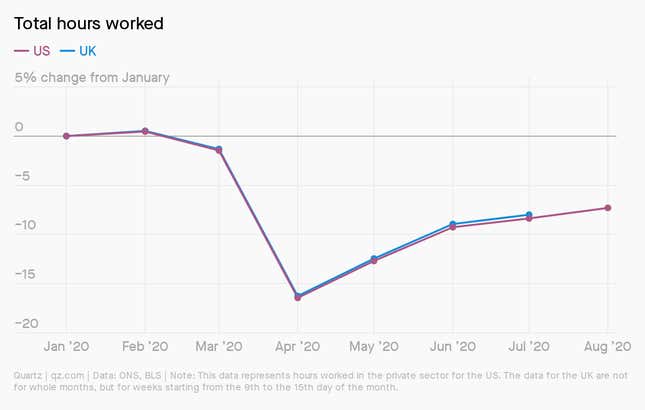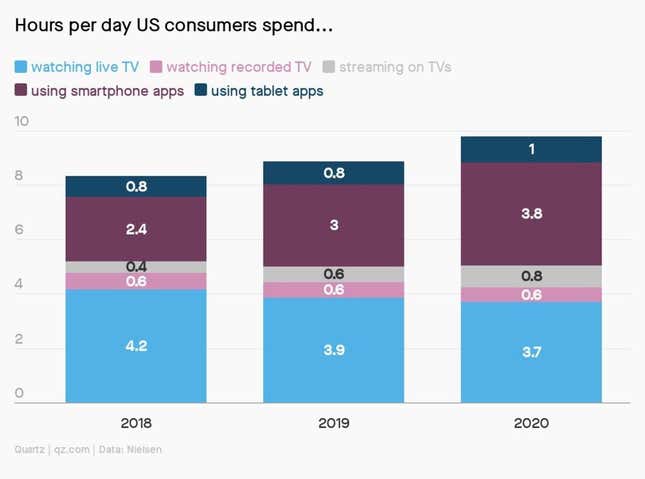Good morning, Quartz readers!
Here’s what you need to know
Vaccine expectations got a little clearer. The chief of the US Centers for Disease Control and Prevention told the senate that the completion of general vaccine distribution and the return of “regular life” is probably not realistic until mid-2021. Meanwhile, India is buying 100 million doses of Sputnik-2 from Russia.
Flipkart’s going for an IPO. According to Reuters, the Walmart-owned Indian ecommerce giant will choose between Singapore and the US for its initial public offering. Flipkart is hoping for a valuation of up to $50 billion when it lists next year. India’s government is working on legislation to make it easier for companies to list directly on overseas exchanges.
Facebook showed off its new toys. The Quest 2 virtual reality headset made its debut at Facebook Connect, the company’s annual virtual and augmented reality conference, as did Facebook’s first pair of AR glasses. The smart specs, a partnership with Ray-Ban-maker Luxottica, should become an actual reality next year. Sony also released the pricing and release date for its next-generation Playstation 5 video game console.
Snowflake and Jfrog IPOs opened strong. Cloud computing company Snowflake made history with the biggest software IPO ever, as share price climbed 111% on its first day of trading, supporting Quartz’s prediction that cloud computing would power innovation in 2020. JFrog, an Israeli software developer, also made its market debut today with a 47% leap in share price.
India’s planned parliament building has a contractor. Tata Project’s $117 million proposal beat out rival Larsen & Toubro’s bid. The news comes just in time for prime minister Narendra Modi’s 70th birthday, which his BJP party is celebrating with a week-long series of events.
A name game
Another day, another streaming video announcement. Today, it’s the folks at ViacomCBS who are engaging in a rebranding effort around their direct-to-consumer offering. But what’s in a name? According to the streaming companies, the answer is: Lots of plus signs and action words like GO, NOW, and MAX.
So based on your industry knowledge, can you tell which one of these streaming services doesn’t actually exist?
Find the answer at the bottom of this email. And if you had any trouble figuring it out, let Quartz’s extensive library of field guides on the subject get you sorted.
Charting a special correlation
Job markets in the US and Europe are surprisingly similar. Though the US unemployment rate of 8.4% is running higher than that of the entire EU, which typically runs several percentage points higher than the US, the actual states of the labor markets have parallels.
The change in total hours worked in the US and Britain are roughly even, which shows that a good chunk of people in the UK counted as employed are actually on government support. In Britain, more than 5 million people, including furloughed employees, were temporarily away from work in July. Economists widely expect the number of unemployed Brits to jump higher when the furlough support ends next month. Read more.

Limited attention span
If you did well on our streaming platform name quiz, it could be because you’re watching a lot of TV. But we’re willing to bet you’re watching a lot of other things, too. These days, viewers’ time is being claimed by a lot of different types of media.

The last 20 years has also seen the rise of entirely new vehicles for advertising—web search and social media—that attract billions of eyeballs. Consumers are everywhere and advertisers are struggling to figure out how best to reach them. Read more in our field guide on the TV ad of the future.
✦ Is Quartz one of the things demanding your attention lately? We suggest leaning in with a membership, which lets you directly support what we do and gives you access to the whole site, including our field guide archive. If you’re not already a member, sign up to become one today.
Build a sustainable productivity routine
How to build a more efficient, sustainable productivity routine. Register to join us on September 17th from 11-12pm EDT for our free virtual workshop, where we’ll bring together experts to explore the psychology of procrastination, why hitting a productivity wall is normal, and advice on how set yourself up for efficiency.
Obsession interlude: How we spend
The coronavirus pandemic is having a big impact on the global economy, and a noticeable effect on lots of smaller industries as well. Here’s how what we buy is changing:
⬆️ Tie dye: Online sales of Rit Dye increased 800%.
⬆️ Gardening supplies: Sales of Scotts Miracle-Gro rose 16%.
⬇️ Movie theaters: Estimated global losses of $5 billion.
⬇️ Luxury goods: Estimated global losses of $43.4 billion.
⬆️ Comfy shoes: First quarter sales of Crocs rose 14%.
⬆️ Home workouts: View of YouTube workout videos increased 200%.
⬆️ Streaming: Netflix doubled its estimated new subscribers in the first quarter.
⬇️ Men’s suits: Sales estimated to fall 24% this year.
Keep up with our How We Spend obsession.
We’re obsessed with closed captioning
It’s black and white and read all over. Hundreds of millions around the world rely on closed captioning to be able to understand what they’re watching on TV. While the idea seems simple—just add words to relay the dialogue and describe any sounds—it took decades to mandate processes for making entertainment accessible to the deaf and hard of hearing community, as well as the elderly. Now, video viewership has exploded on social media, and new forms of technology are trying to improve often-imperfect live transcription (but still failing to reach 100% accuracy). Flip on the CC setting, and let’s get to reading the Quartz Weekly Obsession.
Surprising discoveries
That’s a lot of unclaimed prizes. It will cost $2.28 million to destroy 7 billion paper Chuck E. Cheese tickets as part of its parent company’s bankruptcy proceedings.
Travis Scott is giving McDonald’s supply chain headaches. The popularity of the rapper’s eponymous meal has caused some restaurants to sell out of its ingredients.
Migratory birds are dying in midair in the US. The side effects of climate change are probably a factor.
Kosher certification has gone virtual. Travel restrictions mean rabbis can’t get to food plants in places like China.
Going broke was no joke for this billionaire. The co-founder of Duty Free Shoppers has successfully donated nearly all of his $8 billion fortune.
The answer to our quiz about streaming service names: YouTube Plus
Correction: In yesterday’s Daily Brief, we wrote that BirdLife International, a UK-based non-governmental organization, removed Taiwan-based Chinese Wild Bird Foundation as a partner over the latter’s support of “independence from China.” Instead, the Taiwanese group refused to sign a document that would have committed it to not promoting Taiwanese independence or not changing its name in Chinese, which translates as “Republic of China Wild Bird Federation.” We regret the error.
Our best wishes for a productive day. Please send any news, comments, kosher food, and suggested streaming service names to hi@qz.com. Get the most out of Quartz by downloading our iOS app and becoming a member. Today’s Daily Brief was brought to you by Oliver Staley, Walter Frick, Max Lockie, Liz Webber, and Susan Howson.